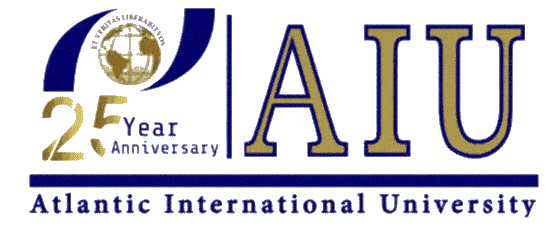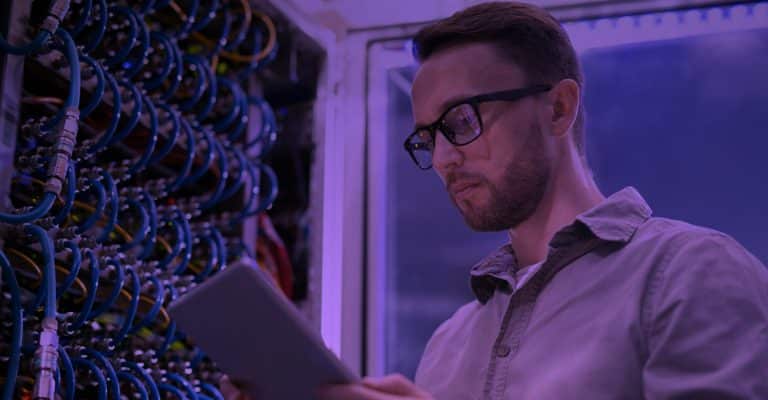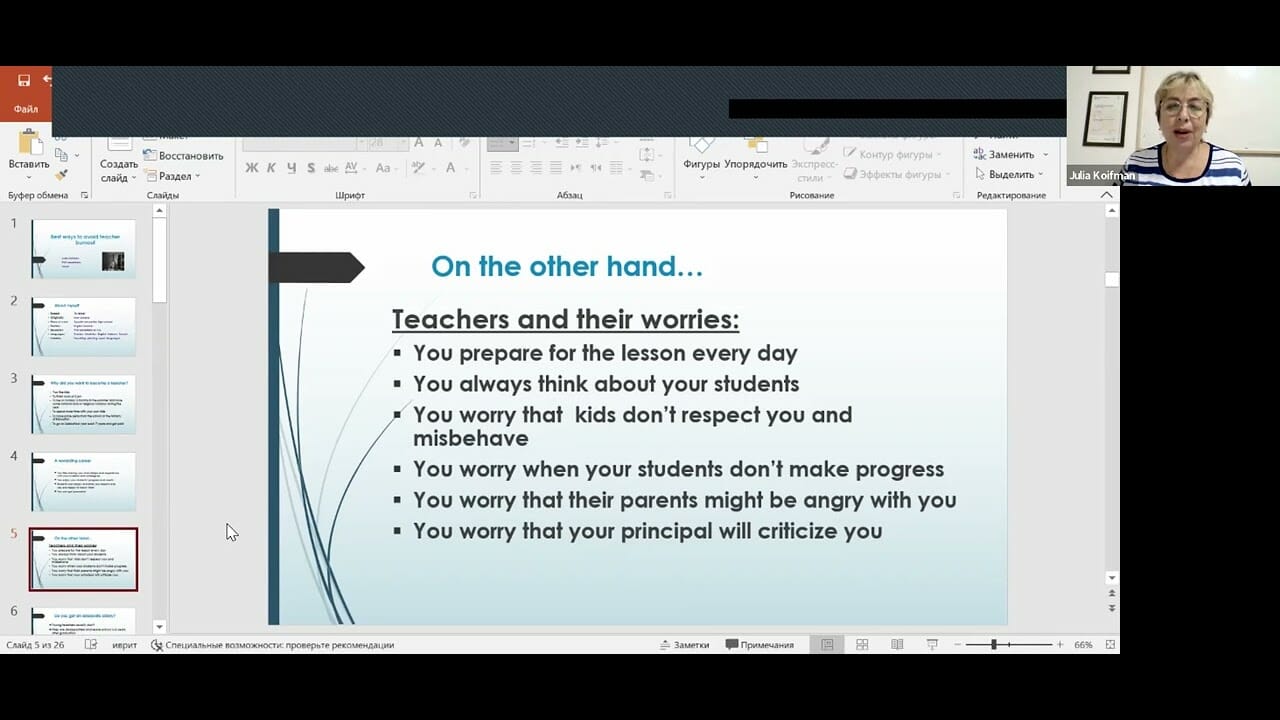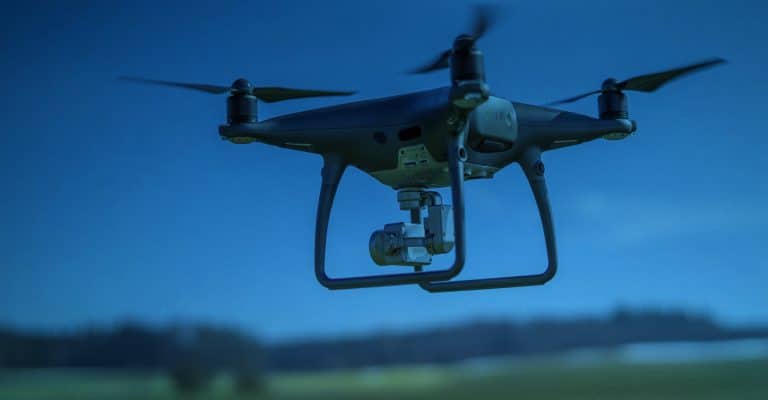Bachelors in Computer Engineering
School of Science and Engineering
Academic Freedom to Discover Your Purpose
Open Curriculum Design at Atlantic International University
Embarking on a journey in computer engineering offers an exhilarating blend of technology and innovation. Whether pursuing a Bachelor of Technology in Computer Engineering or a Computer Engineering degree, the undergraduate program equips you with a robust foundation in hardware and software systems. Through a comprehensive curriculum encompassing mathematics, programming, digital systems, and software engineering, students delve into the intricacies of this dynamic field.
In today’s fast-paced world, the flexibility of distance learning has become indispensable. Many institutions now offer computer engineering programs tailored for remote learners, driven by andragogy-based education. This approach prioritizes self-directed learning, enabling students to engage with course materials at their own pace while benefiting from interactive online platforms and virtual labs. Whether you’re a recent high school graduate or a working professional seeking career advancement, distance learning in our computer engineering undergraduate program provides an accessible pathway to acquiring sought-after skills and expertise in this ever-evolving field.
Contact Us Today!
We understand how busy adults do not have time to go back to school. Now, it’s possible to earn your degree in the comfort of your own home and still have time for yourself and your family. The Admissions office is here to help you, for additional information or to see if you qualify for admissions please contact us. If you are ready to apply please submit your Online Application and paste your resume and any additional comments/questions in the area provided.
Pioneer Plaza
900 Fort Street Mall 905
Honolulu, HI 96813
800-993-0066 (Toll Free in US)
808-924-9567 (Internationally)
808-947-2488 (Fax)
Core Courses & Topics: Bachelors in Computer Engineering
Important: Below is an example of the topics or areas you may develop and work on during your studies. By no means is it a complete or required list, as AIU programs do not follow a standardized curriculum. It is meant solely as a reference point and example. Want to learn more about the curriculum design at AIU? Check here: Course and Curriculum
When considering the best colleges for computer engineering, it’s essential to examine the richness of the computer engineering curriculum. Core courses typically encompass a diverse range of topics crucial for understanding the complexities of modern technology. These may include foundational subjects such as digital logic design, computer programming languages like C++, Java, or Python, data structures and algorithms, computer architecture, operating systems, and software engineering principles. Additionally, specialized courses in networking, cybersecurity, artificial intelligence, and machine learning further broaden students’ knowledge base. By mastering these core concepts and techniques, graduates are well-equipped to pursue many career prospects in computer engineering, ranging from software development and systems architecture to cybersecurity analysis and machine learning research.
- Digital Logic Design
- Computer Programming
- Data Structures and Algorithms
- Computer Architecture
- Operating Systems
- Software Engineering
- Computer Networks
- Database Systems
- Embedded Systems
- Computer Graphics
Orientation Courses
As students embark on their journey toward a Bachelor’s in Computer Engineering, orientation courses serve as crucial stepping stones to specialized knowledge. These courses typically cater to a diverse cohort of learners, including those with backgrounds in computer science, engineering degrees, and related fields. These orientation courses cover essential concepts such as programming fundamentals, mathematical foundations, and basic engineering principles, which lay the groundwork for more specialized study in computer engineering. They also provide a bridge for students transitioning from diverse academic backgrounds to integrate into the computer engineering specialization seamlessly.
Understanding the admission requirements for computer engineering, including computer science and engineering prerequisites, ensures that students are equipped with the foundational knowledge necessary to excel in this rigorous program. Whether delving into algorithms, circuit design, or software development, orientation courses pave the way for students to embark on a rewarding educational journey in computer engineering.
- Communication & Investigation (Comprehensive Resume)
- Seminar Administrative Development (Book Summary)
- Organization Theory (Portfolio)
- Seminar Cultural Development (Practical Experience)
- Experiential Learning (Autobiography)
- Seminar International Development (Publications)
Research Projects
Research projects play a pivotal role in the academic journey of Bachelor’s students in Computer Engineering, offering opportunities to delve deeper into various facets of technology. These projects cater to the diverse interests of students pursuing degrees in computer science, engineering, and information technology. From software engineering endeavors focused on developing innovative applications to computer hardware projects exploring cutting-edge designs, research projects encompass various topics. Students may delve into information technology programming languages, experimenting with novel algorithms and data structures, or engage in hardware prototyping, exploring advancements in processor architecture or embedded systems design. Through these computer engineering degree projects, students not only enhance their technical skills but also cultivate critical thinking, problem-solving, and collaboration abilities essential for success in the rapidly evolving field of computer engineering.
- MBM300 Thesis Proposal
- MBM302 Bachelor Thesis (5,000 words)
Publication – Student publications are invaluable platforms for Bachelor’s students in Computer Engineering to showcase their research, insights, and innovations in the field. These publications cater to the interdisciplinary nature of computer engineering, welcoming contributions from students pursuing degrees in electrical engineering, computer engineering, and related fields. Computer engineering students can share their experiences and expertise with peers and professionals, whether through technical papers, case studies, or project reports.
These publications highlight the diverse talents within the computer engineering program and foster collaboration and knowledge exchange across the broader realms of engineering and computer science. Student publications play a crucial role in nurturing intellectual growth and academic discourse within the electrical and computer engineering community by providing a space for students to disseminate their findings and ideas.
Thesis Defense for Bachelors in Computer Engineering
The thesis defense for computer engineers represents a significant milestone in the academic journey of Bachelor’s students pursuing degrees in Computer Engineering. As they culminate their studies, these aspiring computer engineers thoroughly examine their research and findings in computer science and computer engineering.
From exploring intricate algorithms to delving into the depths of computer architecture, students of computer engineering degree showcase their mastery of fundamental principles and their ability to apply them to real-world problems. They demonstrate their readiness to contribute meaningfully to the field through articulate presentations and thoughtful responses to probing questions. The thesis defense for a degree in computer engineering not only validates their expertise in computer engineering but also marks the beginning of their computer architecture and engineering journey as adept problem solvers and innovators in the ever-evolving landscape of technology.
Apply for Bachelors in Computer Engineering at AIU
Get Started
Bachelors in Computer Engineering Student Experience
In pursuing a Bachelor’s in Computer Engineering, students embark on a transformative journey encompassing a rich tapestry of experiences. Immersed in the dynamic world of computer systems, software engineering, and embedded systems, they navigate a diverse curriculum designed to hone their skills and broaden their horizons. Through hands-on projects and collaborative endeavors, students harness the power of technology to solve complex engineering problems, preparing them for the challenges of tomorrow’s tech landscape. Moreover, as they delve into the ethical and professional responsibilities inherent in their field, they emerge as proficient engineers and conscientious global citizens.
At the forefront of their educational voyage, students at AIU benefit from innovative AI tools like MidJourney, Dall-E, and Stable Diffusion, empowering them with cutting-edge resources to enhance their learning experience. These tools augment traditional instruction methods, fostering a dynamic and interactive environment where students can confidently explore, experiment, and innovate, paving the way for a truly immersive and transformative educational journey in computer engineering.
Community & Social
Within the Bachelor’s in Computer Engineering program at AIU, students are not just participants but integral members of a vibrant and inclusive community facilitated by cutting-edge technologies. Despite the online nature of the program, students engage with peers, alumni, and faculty through various avenues, such as symposiums, webinars, and conferences, fostering collaboration and connection.
Through platforms like MYAIU and AIULink, students can interact based on shared interests, majors, and research areas, creating a collaborative and inclusive environment conducive to learning and growth. Additionally, access to resources like the Curriculum Builder Tool and Merlin Media Center empowers students to tailor their learning experience while delving into diverse topics ranging from operating systems to engineering design. With over 210,000 books and millions of peer-reviewed articles available through the AIU Online library, students can access a wealth of knowledge at their fingertips, enriching their academic journey. By leveraging these tools and resources, the Bachelor’s program in Computer Engineering at AIU goes beyond mere education, fostering a sense of community and empowerment among its students, making it one of the premier destinations for professionals seeking to advance their careers in the field.
Academic Resources
For Bachelor’s students in Computer Engineering, access to comprehensive academic resources is paramount to their success in navigating the complexities of the field. At AIU, many resources are tailored to support the diverse needs of computer engineering majors, ensuring they have the tools necessary to develop their engineering judgment and devise innovative solutions to complex problems. From foundational subjects like computer programming to cutting-edge technologies such as machine learning, students can access a wealth of learning materials and interactive modules. Furthermore, resources dedicated to understanding computer hardware enable students to delve into the intricacies of system architecture and design. Whether through virtual laboratories, online tutorials, or access to specialized software, AIU empowers computer engineering students to explore engineering solutions, experiment, and excel in their academic pursuits, equipping them with the knowledge and skills needed to thrive in the ever-evolving landscape of technology.
Virtual Campus
Complete assignments online or offline at your convenience with 24/7 access to distance learning through AIU’s Virtual Campus. Step by Step guides including videos, tutorials, live webinars and examples for each course. All materials can be access on all web browsers as well as via AIU's Mobile App which brings all the features of the Virtual Camus to your Mobile Device.
My AIU Elements
MyAIU’s primary goal is to go beyond Academics, it looks to guide students through 11 elements that are key to living life optimally in all aspects. By identifying and reflecting on these key areas, an opportunity arises to holistically address them, through positive change, habits, reinforcement and tools to keep students on their chosen path.
AIU TV & Radio
The students have the opportunity to produce, edit and host their own show reaching a worldwide audience, the AIU community and giving notice of their expertise/passion in the subject. AIUTV & AIU Radio allow students to explore new ways to communicate, develop a platform and form potential collaboration with likeminded individuals.
AIU Campus Mundi
AIU Campus Mundi is a monthly magazine that gathers the most notable news and information about the university and its members in one convenient place. The magazine allows our community to be well informed, involved and keep in tough regardless of their geographic location. AIU Campus Mundi publishes, news, research, events, awards, academic achievements.
Graduation Ceremony
Each year AIU organizes graduation ceremonies where the students can assist and share their experiences with fellow students and academic members Participation in the ceremony is optional, the day’s events include conferences, research presentations, group meetings, networking, lunch and formal dinner.
Symposiums & Webinars
Symposiums are invaluable opportunities for Bachelor’s students in Computer Engineering to gain international exposure and refine their skills in various aspects of the field. Through participation in these events, students delve into topics ranging from computer hardware design to programming languages, honing their ability to interpret data and produce innovative solutions to complex problems.
Live Classes
In the Computer Engineering bachelor program, students engage in two live classes each day, designed to provide a comprehensive education that integrates principles from electrical engineering and computer science courses. These sessions focus on tackling complex engineering problems through a multidisciplinary approach, covering data structures, computer hardware design, and appropriate experimentation methodologies. Led by experienced instructors, these classes foster an interactive learning environment where students actively participate in discussions, collaborate on projects, and engage in hands-on activities. Through these live sessions, students in computer engineering significantly gain practical insights and theoretical knowledge essential for addressing real-world challenges in the field.
Live Classes Examples on Computer Engineering: DevOps Tutorial for Beginners | No Code Statistical Analysis | Introduction to Computer Engineering
Special Projects, Research Publications, & Co-Authoring
Engaging in special projects, contributing to research publications, and collaborating as co-authors are integral to the academic journey for Bachelor’s students in Computer Engineering. Through hands-on projects spanning diverse areas such as computer graphics, computer networks, and systems programming, students apply their knowledge gained from engineering courses to real-world scenarios. These endeavors deepen their understanding of hardware and software and equip them with invaluable problem-solving and critical analysis skills. Moreover, involvement in research projects enhances their academic profile, preparing them to pursue advanced degrees in graduate programs. With guidance from the academic advising center, students navigate opportunities to contribute to scholarly publications, establishing themselves as emerging experts in computer engineering. Such experiences enrich their undergraduate education and lay a solid foundation for their future endeavors in academia and industry.
Stay Updated with AIU’s Interesting Computer Engineering Education
Read AIU Mundi Magazine
Career Center for Bachelors in Computer Engineering
The career center is a vital resource hub for Bachelor’s students in Computer Engineering, equipping them with the skills and tools necessary to thrive in their professional journeys. Through tailored workshops and individualized coaching sessions, students learn to communicate verbally and in writing effectively, enhancing their ability to function effectively in diverse workplace settings. Whether they are exploring internship opportunities during their undergraduate programs or embarking on their career paths post-graduation with a bachelor’s degree, the career center provides guidance every step of the way.
Students are encouraged to leverage their knowledge of digital systems acquired through upper-division courses and research projects to excel in internships and entry-level positions. Additionally, the career center offers resources for students interested in pursuing graduate courses, ensuring they have access to the information and support needed to advance their education. By fostering an inclusive environment and offering personalized career development assistance, the career center empowers students to navigate the complexities of the job market and achieve their professional aspirations in computer engineering.
Job Description
A Bachelor’s in Computer Engineering prepares graduates for many exciting career opportunities at the intersection of technology and innovation. Armed with expertise in electronic circuit design and a strong foundation in mathematics courses, graduates are poised to excel in diverse engineering situations.
Their understanding of artificial intelligence equips them to navigate complex systems and adapt to evolving technological landscapes, while their ability to recognize ethical considerations ensures responsible decision-making. Accredited by the Accreditation Board, graduates are well-equipped to tackle challenges influenced by economic factors, driving impactful solutions in the industry. Here are some potential job roles for graduates with a Bachelor’s in Computer Engineering:
- Software Engineer
- Systems Analyst
- Network Engineer
- Data Scientist
- Cybersecurity Analyst
- Robotics Engineer
- Machine Learning Engineer
- Hardware Engineer
- Web Developer
- Database Administrator
- IT Consultant
- Computer Systems Analyst
- Embedded Systems Engineer
- Artificial Intelligence Specialist
- Software Quality Assurance Engineer
Tools for Bachelors in Computer Engineering
A Computer Engineering degree opens doors to many professional careers, spanning industries from cloud computing to life sciences. Professionals rely on diverse tools tailored to their specific needs to excel in these fields. Whether optimizing code efficiency, analyzing large datasets, or managing complex software projects, having the right tools is essential. Here’s a list of essential tools for Computer Engineering professionals:
- Integrated Development Environments (IDEs): Visual Studio Code, IntelliJ IDEA, PyCharm
- Version Control Systems: Git, SVN
- Virtualization Platforms: VMware, VirtualBox
- Cloud Computing Platforms: Amazon Web Services (AWS), Microsoft Azure, Google Cloud Platform (GCP)
- Programming Languages: Python, Java, C/C++, JavaScript, SQL
- Data Analysis Tools: MATLAB, R, Tableau, Power BI
- Containerization Tools: Docker, Kubernetes
- Text Editors: Sublime Text, Atom, Vim
- Project Management Tools: Jira, Trello, Asana
- Testing Frameworks: Selenium, JUnit, pytest
Associations for Computer Engineering Professionals
Joining professional associations can significantly enhance the educational experience of bachelor’s students in computer engineering and help them align with their educational objectives. These associations offer valuable resources such as specialized courses, technical electives, and networking opportunities that complement traditional classroom learning. Especially in an era of increased online learning, these associations provide a platform for students to stay updated on industry trends, connect with peers and professionals, and gain insights into emerging technologies.
Here’s a list of associations that Bachelor’s students in Computer Engineering may consider joining:
- Association for Computing Machinery (ACM)
- Institute of Electrical and Electronics Engineers Computer Society (IEEE-CS)
- Computing Research Association (CRA)
- Association for Women in Computing (AWC)
- Society for Industrial and Applied Mathematics (SIAM)
- International Association of Computer Science and Information Technology (IACSIT)
- Association for Information Systems (AIS)
- National Society of Professional Engineers (NSPE)
- Association of Software Professionals (ASP)
- International Association of Computer Science and Information Technology (IACSIT)
Register Now to Begin Your Computer Engineering Journey with Us
Click Here
Bachelor in Computer Engineering Requirements
Individuals aspiring to pursue a Bachelor’s degree in Computer Engineering at AIU must meet specific requirements to be eligible for admission. Typically, applicants must hold a High School Diploma, a GED certificate, or an equivalent qualification from a recognized institution. Additionally, demonstrating proficiency in physical sciences and a track record of academic excellence is often expected.
While specific prerequisites may vary among institutions, applicants are generally encouraged to have completed relevant prerequisite courses, such as mathematics, physics, and computer science, to ensure they possess the foundational knowledge necessary to excel in the program. By meeting these requirements, prospective students lay the groundwork for a successful academic journey in computer engineering.
How Can You Apply?
Steps to Pursue a Bachelor’s in Computer Engineering:
- Explore AIU’s courses to study in-depth about the Bachelor in Computer Engineering course
- Include all your personal and academic details
- Complete entering all details and submit the application
- One of our academic advisors will contact you soon
Financial Support & Scholarships
At AIU, Bachelor’s students in Computer Engineering have access to various financial support options and scholarships to help alleviate the costs associated with their education. Recognizing the importance of fostering academic excellence, AIU offers scholarships based on merit, which may consider factors such as academic performance, demonstrated proficiency in physical sciences, and completion of prerequisite courses. These scholarships aim to reward and support students who have shown exceptional dedication to their studies and exhibit promise in computer engineering. Additionally, AIU provides resources and guidance to help students explore external scholarship opportunities, ensuring that financial constraints do not hinder their pursuit of higher education and success in the program.
What’s the Cost Per Year for Pursuing Bachelors in Accounting and Finance at AIU?
The cost of pursuing a Bachelor’s in Computer Engineering at AIU is designed to be affordable and manageable for students, with the option to pay in installments. Recognizing the financial considerations of higher education, AIU offers competitive tuition rates and flexible payment plans, allowing students to spread the cost of their education over time.
This approach enables individuals to pursue their academic aspirations without undue financial burden, ensuring that the opportunity to obtain a quality education in computer engineering remains accessible to all. With transparent fee structures and support from the financial aid office, students can plan their educational expenses effectively and focus on their studies confidently, knowing they are investing in their future at a reasonable cost.
FAQs
What can I expect to learn in a computer engineering program?
In a computer engineering program, you can expect to learn diverse topics that bridge the gap between computer science and electrical engineering. This includes studying digital logic design, computer architecture, programming languages, software engineering principles, data structures and algorithms, computer networks, embedded systems, and more. Additionally, you’ll gain hands-on experience through projects and labs, learning to design and implement hardware and software solutions to complex problems. Overall, a computer engineering program provides a comprehensive understanding of the principles and technologies underlying modern computing systems, preparing you for a wide range of career opportunities in the tech industry.
What are the career prospects for graduates with a Bachelor's in Computer Engineering?
Graduates with a Bachelor’s in Computer Engineering have excellent career prospects, with opportunities in diverse industries such as technology, telecommunications, automotive, aerospace, and more. They can pursue roles as software engineers, hardware engineers, systems analysts, network engineers, cybersecurity analysts, embedded systems developers, and robotics engineers. With their strong foundation in hardware and software, computer engineering graduates are well-equipped to adapt to the evolving needs of the tech industry and contribute to cutting-edge innovations in fields such as artificial intelligence, Internet of Things (IoT), and cloud computing.
What are the differences between computer engineering and computer science?
Computer engineering focuses on the design and development of hardware and software systems, emphasizing integrating computer science principles with electrical engineering concepts. This includes studying digital systems, computer architecture, embedded systems, and hardware design. On the other hand, computer science primarily focuses on the theory, algorithms, and applications of computing, including programming languages, data structures, algorithms, artificial intelligence, and software development methodologies. While computer engineering encompasses aspects of computer science, it also involves a deeper understanding of hardware components and their interaction with software systems.
What are the prerequisites for entering a computer engineering program?
Prerequisites for entering a computer engineering program typically include a high school diploma or equivalent qualification, with strong grades in mathematics, physics, and computer science courses.
What kind of projects or internships can I expect during my studies?
During your studies in computer engineering, you can expect to participate in a variety of projects and internships that provide hands-on experience in applying theoretical concepts to real-world scenarios. These may include designing and implementing software applications, developing embedded systems, working on hardware prototypes, contributing to research projects in areas such as artificial intelligence or cybersecurity, and collaborating with industry partners on engineering projects. Internships may involve working at tech companies, research institutions, or government agencies, gaining valuable industry experience and networking opportunities.
Contact Us
Atlantic International University
900 Fort Street Mall 905 Honolulu, HI 96813
Quick Links
Home | Spanish | Online Courses | Available Courses | Vrtual Campus | Career Center | Available Positions | Ask Career Coach | The Job Interview | Resume Writing | Accreditation | Areas of Study | Bachelor Degree Programs | Masters Degree Programs | Doctoral Degree Programs | Course & Curriculum | Human Rights | Online Library | Representations | Student Publication | Sponsors | General Information | Mission & Vision | School of Business and Economics | School of Science and Engineering | School of Social an Human Studies | Media Center | Admission Requirements | Apply Online | Tuition | Faculty & Staff | Distance Learning Overview | Student Testimonials | Frequently Asked Questions | Register for Program | Privacy Policy | FAQ



























